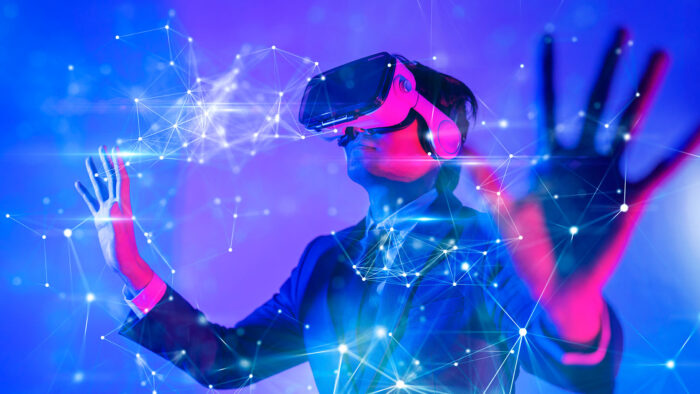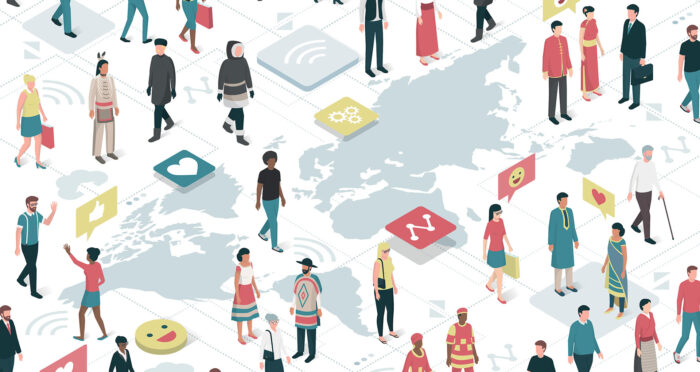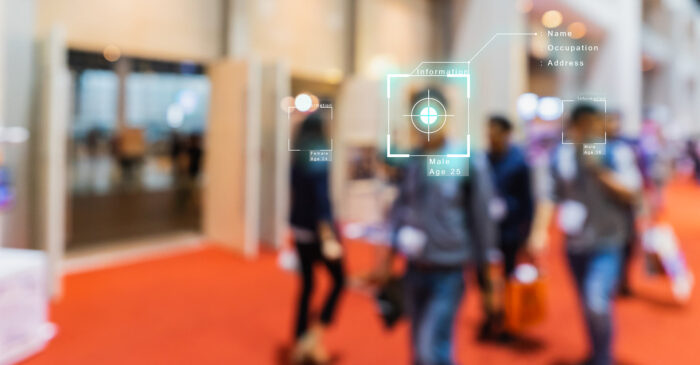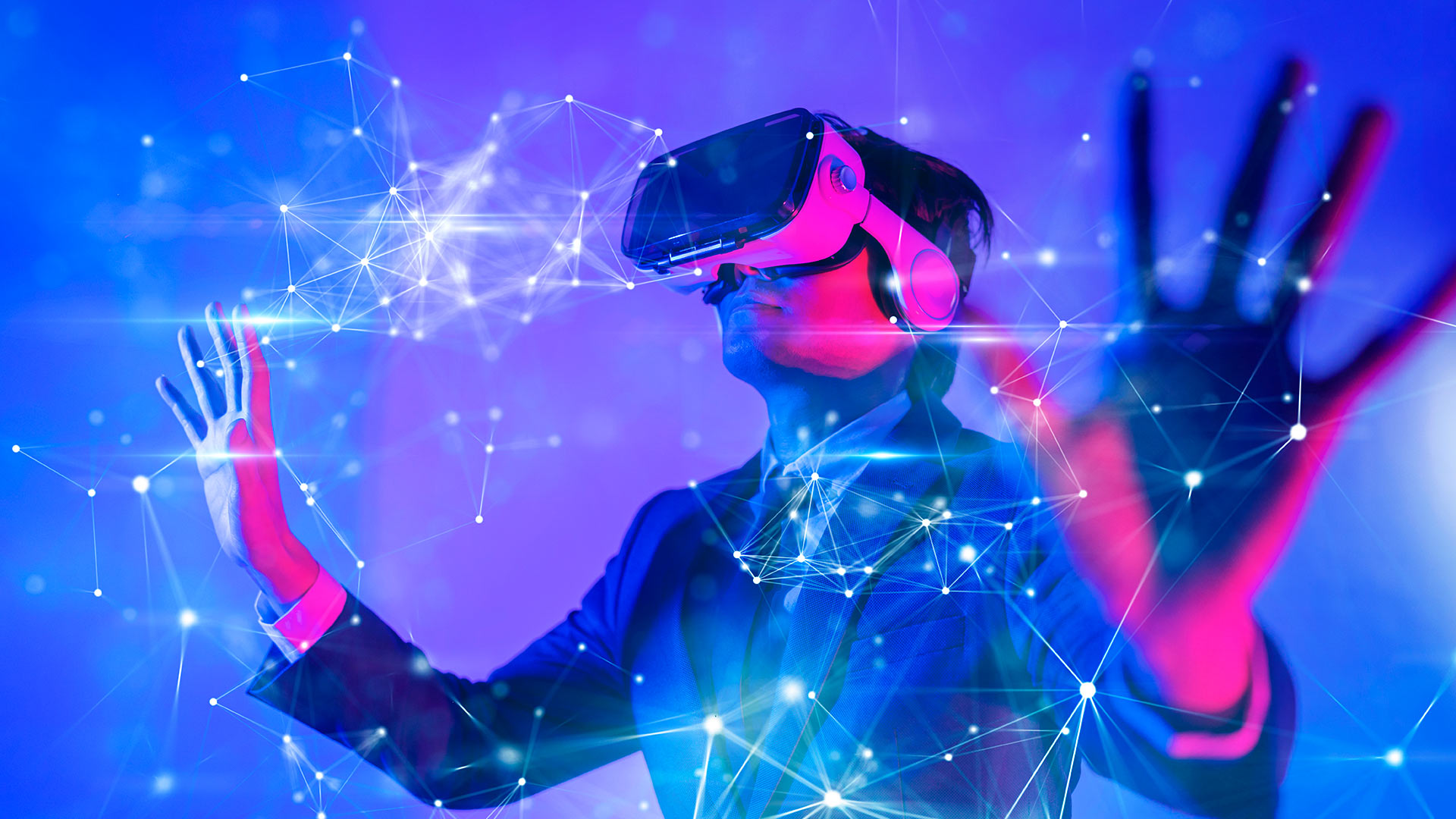I first heard the term Metaverse several years ago when I was doing research for a whitepaper and feature film I produced entitled Customer Experience Future Shock (can be seen here). The term is placed in the context of the further evolution of the internet’s capability and our increasing reliance upon it for basic modern life. For example, do you remember the internet before social media? Or before you could post your self-created content, say to YouTube? Game-changer, right? Well, the emerging functionality of the internet will soon be infinitely more impactful to your day-to-day life, but will also be seismic when one considers how it will re-shape long-conditioned behaviors of how we communicate, learn, shop, work or even how we think. The stuff of science fiction, you say? Actually, you’d be right since the term was coined by Neal Stephenson in his dystopian 1994 novel, Snow Crash. But, as is often the case, when you delve deeper, it’s really not that scary.

We recently convened with our friends at Trend Hunter to discuss their research on the metaverse and the report, Into the Metaverse, by Wunderman Thompson Intelligence. Specifically, we considered the impact of the metaverse on the retail ecosystem, but also on our general behaviors and its potential impact on other industries and experiences.
But first, let’s get some foundational definitions in place. You might recall a day a few years ago, when all the websites you visited started informing us that they’re using cookies “to enhance your internet experience.” Where you go online, what you look at— your interests, disinterests, vocational, subject-matter-based— all these places you visit online provide insights about you. These activities are converted to data by the use of “cookies” (think: follow the crumbs)… And based on that data, predictions can be made on your future behavior. The more internet surfing, the more granular your activities— the more accurate those predictions. While a great number of us would perhaps rightfully say, “That’s an invasion of my privacy!” it’s actually nothing new— we’ve all been anonymous data-points for a century or more. But, wouldn’t you want an internet that knows you (really well) and that can conform to your ways of thinking and living? And what if the internet didn’t require that some big company like Facebook or Twitter to stand between you and the people you want to network with? Eventually, the internet might know you so well that you could exist on the internet as a digital twin. And you will bob & weave in-and-out of this virtual reality on the fly. That is the metaverse.
Jumping ahead for a moment, consider what’s happening on web communities like Decentraland or Second Life— these massive multiplayer virtual social networks have real businesses inside (or “in-world”) that make their inhabitants real money. But, at least for now that’s an extreme example of the metaverse, or perhaps just a slice of one’s life, say for entertainment’s sake, right? While this is an extreme example of how a metaverse can take shape, it ties back to the concept of having a digital twin, in this case, an avatar.

What if your digital twin is like your personal digital assistant— it has access to your schedule, can prompt you to remember your anniversary, is linked to your smart home and office and can remind you that you’re almost out of milk, consumed too many calories already for the day, and book a conference room for that meeting you just got a text about? That’s a whole lot more practical and, as you can imagine we’re getting closer to that every day. So, let’s imagine it just a little further out there… this digital twin of your’s has shopped online, taken classes online, is in numerous zoom calls all day, stores and files all of your communications and all your contacts, pictures, music, movies, games… I can keep going, but you get it. You and your digital twin are woven together. The only difference is: you are immersed in the real world and the digital twin is immersed in cyberspace— a soulless ocean of zeros and ones.
But, what if you could make the online experience more immersive and dynamic? What if you could occupy this virtual world artificially— like with virtual reality headsets or augmented reality glasses? What would the store, school, medical building or workplace look like in there? Better yet, since this digital twin knows your tastes, habits and behaviors, maybe even your memories as good as you, why couldn’t these virtual places and experiences be personalized for you, specifically. Even better yet, your peeps could come hang with you in your virtual crib! That’s a lot more personal than a text or a tweet or a snapchat.
So, there’s a pretty good chance that someday in the relatively near-future, you’re going to stumble upon a virtual space on the internet that has been designed to be more interactive, more personal and that you can only experience online. In fact, just this year a virtual house was designed and posted online as a Non-Fungible Token, and was quickly purchased for over $500,000. So what are NFTs? In the simplest terms, NFTs transform digital works of art and other collectibles into one-of-a-kind, verifiable assets that are easy to trade on the blockchain. As mentioned before, the metaverse can be monetized. People (and companies) will pay to have their little slice of the metaverse designed and built for them. Brings new meaning to the term ‘homepage,’ right?
In this new reality, what does your store or business look like? In a post-COVID world, where the entire real world has adapted to doing nearly everything online from home, how will they experience your brand online? Will it be as generic as a Zoom call? Will your online or device-based experience remain page-based or will it become a virtual reality that is more immersive and super-activated due to it’s inherent multi-media capability? Moreover, will your places and experiences in the metaverse take full advantage of your guests’ digital twin and will it therefore adapt to their unique needs & desires, tastes & values, history & aspirations? Lastly, how will these new encounters with your guests, customers, staff, etc., blend with the experiences they have when they encounter your company in reality? Since, as we all are seeing, the line between the real and the virtual continues to blur.

If we were to add to these notions the continued expansion of artificial intelligence (AI) and its practical uses, the likelihood of a variety of outcomes can unfold in this virtual reality. We can extrapolate that multiple outcomes can take place at the same time, almost in a quantum fashion (ok, if I haven’t lost ya already…). My point being, the metaverse is in fact an alternate universe or multi-verse. Except, contrary to the one that has been proposed by science— where you have no say on how this new reality is shaped— in the metaverse, you are the prime collaborator in your experience, and I am for my own experience. An experience that is highly customized, personal and fluid. Welcome to the future, again.

